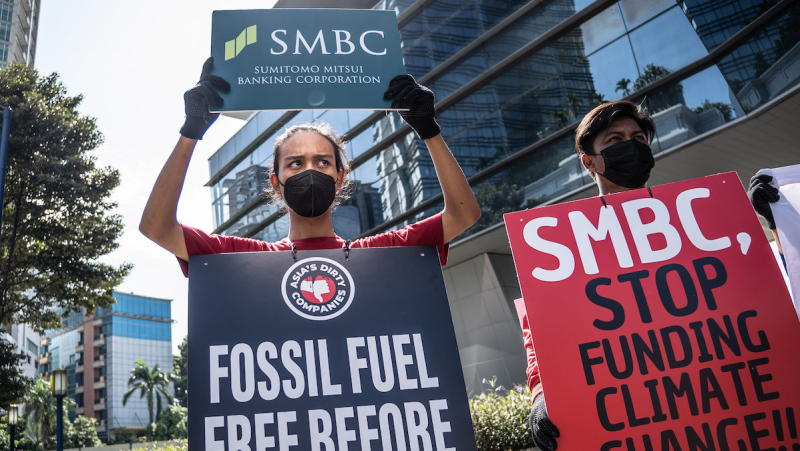Japanese megabank SMBC accused of fueling climate crisis in Bangladesh

Coastal Livelihood and Environmental Action Network (CLEAN) released a scathing new report titled “SMBC in Bangladesh: Financing Dirty Energy | Scrapping Our Future”- exposing the Sumitomo Mitsui Banking Corporation (SMBC), which has provided financial advice for a coal power plant and financed USD 238.71 million for three energy projects in Bangladesh. With its financial services, the dirty companies developed 2,218 MW fossil fuel-based power plants and a 500 Million standard cubic feet per day LNG Terminal.
The Sumitomo Mitsui Banking Corporation (SMBC), a Japanese megabank ranked among the global “Dirty Dozen” for its fossil fuel financing, has played a pivotal role in backing environmentally and economically harmful energy projects in Bangladesh. Despite its global presence in 39+ countries, SMBC does not have a physical presence in Bangladesh and it has left a devastating carbon footprint and financial burden on our energy sector. SMBC has directed significant financial resources into coal, LNG, and heavy fuel oil (HFO) infrastructure without any investment in renewable energy. The Coastal Livelihood and Environmental Action Network (CLEAN) is calling for immediate accountability and a redirection of SMBC’s financing toward sustainable energy.
According to the report by Hasan Mehedi, Member Secretary, Bangladesh Working Group on Ecology and Development (BWGED) - “Surprisingly, SMBC has not invested a single penny in developing a renewable energy project or capacity in the country. SMBC's projects have led to long-term capacity payment obligations for the government and the creation of stranded assets, resulting in a devastating carbon footprint.”
He emphasized that, “In just six years, two SMBC-supported infrastructures, the Summit LNG Terminal and the Summit Gazipur II Power Plant have already drained BDT 6,355 crore (USD 654 million) from the Government of Bangladesh in capacity charges. If allowed to continue under existing 15-year contracts, these projects will extract at least BDT 20,129 crore (USD 1.86 billion) in public funds without delivering reliable or sustainable energy.”
The factsheet highlights SMBC's lack of transparency regarding these projects and includes urgent recommendations for SMBC, calling on the Japanese megabank to rectify its harmful financial practices in Bangladesh. SMBC served as Financial Adviser for the costly Matarbari Coal Power Plant and financed the Summit LNG Terminal, Gazipur II HFO Power Plant, and Meghnaghat LNG Power Plant. These projects have become stranded assets, resulting in significant capacity charges for Bangladesh and operating below optimal capacity. The financed projects have also contributed millions of tons of CO2 emissions. Urgent recommendations include that SMBC stop financing fossil fuels, rejoin the Net-Zero Banking Alliance, compensate affected communities, and finance renewable energy expansion in Bangladesh.
“This is a wake-up call. Japanese financiers must stop burdening Bangladesh with polluting and uneconomic infrastructure.”
See the full fact-sheet for more information: SMBC Factsheet
See the full press-release: Full press release
